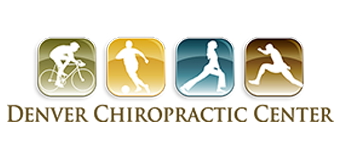Race Report – The Hot Chocolate 5k & This Week’s 1-Page Health News
“The greatest wealth is health.”
~ Virgil
Harsh verbal punishments, such as shouting, cursing, or using insults, are just as harmful to adolescents as physical discipline. Adolescents whose parents used harsh verbal punishment are more likely to suffer from depression and are more likely to engage in vandalism or aggressive behavior. Parental warmth, love, emotional support, and affection between parents and their kids is not enough to outweigh the negative effects of harsh verbal discipline.
Child Development, September 2013
Diet: Chew Your Food.
It is not a surprise that almonds are a great source of healthy fats and extra energy. However, the extent that almonds are chewed can make a difference in how much nutrition is absorbed by the body and how much is expelled. The more you chew, the more your body can use.
Institute of Food Technologists, July 2013
Exercise: Sudden Cardiac Death Risk reduced with Exercise.
Sudden cardiac death (SCD) accounts for 50% of all deaths from coronary heart disease, and is defined as death with cardiac origin within 24 hours after onset of symptoms. A 19-year study looked at the impact of high leisure-time physical activity (LTPA) combined with cardiorespiratory fitness (CRF) on the risk of SCD. The results showed that the risk of SDC was nearly double among men who are inactive (low CRF and low LTPA).
Kuopio Ischemic Heart Disease Risk Factor Study, September 2013
Chiropractic: Drugs vs. Needles vs Adjustments.
In this study, acupuncture, medication, and chiropractic care were compared on a patient population with spinal pain, including neck and back pain. Only spinal manipulation provided both short-term and long-term benefits.
Spine, July 2003
Wellness/Prevention: The Great and Powerful Ginger.
Ginger is an herb that is used as a spice and also has therapeutic qualities. The underground stem (rhizome) can be used fresh, powdered, dried, or as an oil or juice. Ginger is used for treating loss of appetite, nausea/vomiting after surgery, flatulence, upset stomach, colic, morning sickness, motion sickness, upper respiratory tract infection, bronchitis, cough, menstrual cramps, arthritis, and muscle pain.
National Library of Medicine, September 2013

